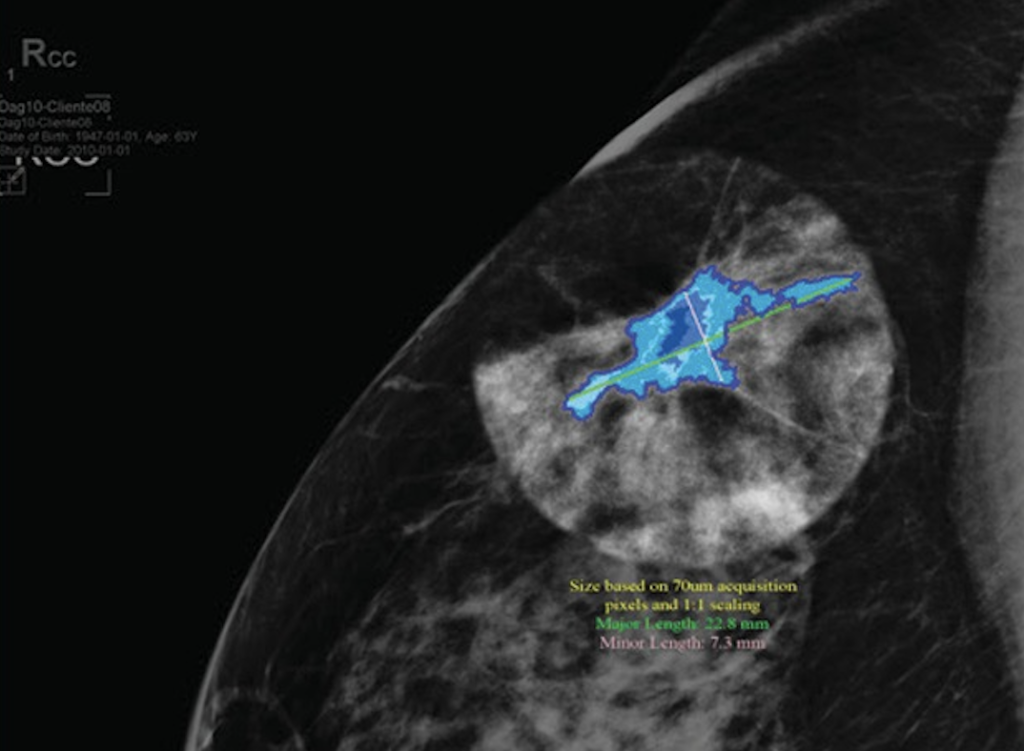AI study for dense breast cancer detection launched at OUH

Researchers at Oxford University Hospitals (OUH) NHS Foundation Trust have teamed up with a US artificial intelligence company on a clinical study designed to demonstrate that its imaging technology enables doctors to visualize breast cancers that are frequently missed in dense breast tissue.
The launch of the PRECISION-DTI (Project to Review Enhanced Cancer Identification through Sensitivity and Specificity Improvements in Dense Tissue Interpretation) study was announced by DeepLook Medical, a leader in visual enhancement technology to advance medical imaging. The study will be testing its DL Precise™ imaging technology.
The study will be conducted at OUH under the leadership of Dr Sarim Ather, Co-Director of Oxford Clinical AI Research (OxCAIR) and Dr Aya Deabes, Consultant Breast Radiologist.
Dense breast tissue is a major challenge in breast cancer screening. It can mask tumours on mammograms, making cancers harder to detect and increasing the likelihood of delayed diagnoses. Data shows around 40 percent of women have dense breasts, and standard screening methods can miss cancers in dense breast tissue.
PRECISION-DTI will examine how DL Precise™ impacts radiologists’ accuracy, confidence and decision-making. The study will include 400 real patient cases with corresponding mammograms and ultrasound images, covering a wide range of ages, breast densities and cancer types. DL Precise™ has been approved for use in the UK and has begun commercial distribution.
Dr Ather said: “With breast cancer costs in the UK projected to reach £3.6 billion annually by 2034, it is critical that we prioritise clinically validated technologies. DeepLook Medical’s DL Precise™ offers AI-powered enhancements designed to uncover cancers often hidden in dense tissue.
“Through PRECISION-DTI, we aim to show how this innovation can strengthen radiologists’ capabilities, enable earlier detection, and ultimately reduce both the human and economic toll of breast cancer.”
Doctors participating in the study will read each case twice, first using standard imaging and then with the AI-generated measurements and overlays provided by DL Precise™. Researchers will evaluate whether the technology improves:
• Accuracy of biopsy recommendations
• Early cancer detection, including cancers often missed in dense tissue
• Doctors’ confidence in classifying findings
• Consistency among radiologists of different experience levels
• Efficiency of interpretation
Dr Deabes commented: “Breast cancer is the most common cancer in the UK and demands early diagnosis to achieve over 90 percent five-year survival rates. Yet, dense breast tissue often obscures cancers in standard mammograms, creating a huge gap in patient care. We need to embrace new technologies to give patients the best care possible, uncovering hidden findings and delivering precise diagnostic insights to guide informed, confident health decisions.”
The collaboration between DeepLook Medical and OUH aims to generate data that could inform future breast cancer screening practices and support earlier, more accurate detection.
Marissa Fayer, CEO, DeepLook Medical said: “Women with dense breast tissue deserve the same chance at early detection as anyone else, yet too often their cancers remain hidden. Partnering with Oxford University Hospitals, an institution at the forefront of medical research, enables us to further demonstrate how DL Precise™ can support radiologists in addressing this critical gap. Together, we’re working to advance women’s health and ensure more women receive timely, accurate diagnoses.”
DL Precise™ is the first in a series of innovative products using DeepLook Medical’s unique shape-recognition software to delineate the details of tumour morphology – a key to better diagnosis and treatment across the field of oncology.




























































